Naturalness, sustainability, learning, and teaching. If these are used not just as buzzwords, but as descriptors of a value system, something truly meaningful might begin. For the greatest things are not at all noisy, but rather quiet, yet significant. This is the case with Csaba Sajben, who has created a wonderfully cozy place with his team in a small corner of Budafok. This is Hétköznapok. (meaning ‘Weekdays’—the Transl.).
Anyone at least slightly familiar with Hungarian gastronomy is likely to have come across Csaba Sajben’s name. As he puts it, he has come this direction by chance, yet he has worked in countless places in recent years. He came to Budapest after finishing a vocational school of catering and getting trained as a chef, where he first got a job at the Zila Café in Pestszentlőrinc. His talent, combined with curiosity, soon came to light, and his next stop was the Onyx Restaurant, just as they were winning Hungary’s first Michelin star under Tamás Széll’s leadership. However, the fast pace following the recognition became too much for him, so he transferred to the Oxygen Restaurant, then to Innio, afterh which he opened his short-lived sausage restaurant, Faszaládé. From there he drifted back to Innio and then Toprum, but he soon found that pure fine dining was less and less his thing, as he wanted more freedom, casualness, and play.
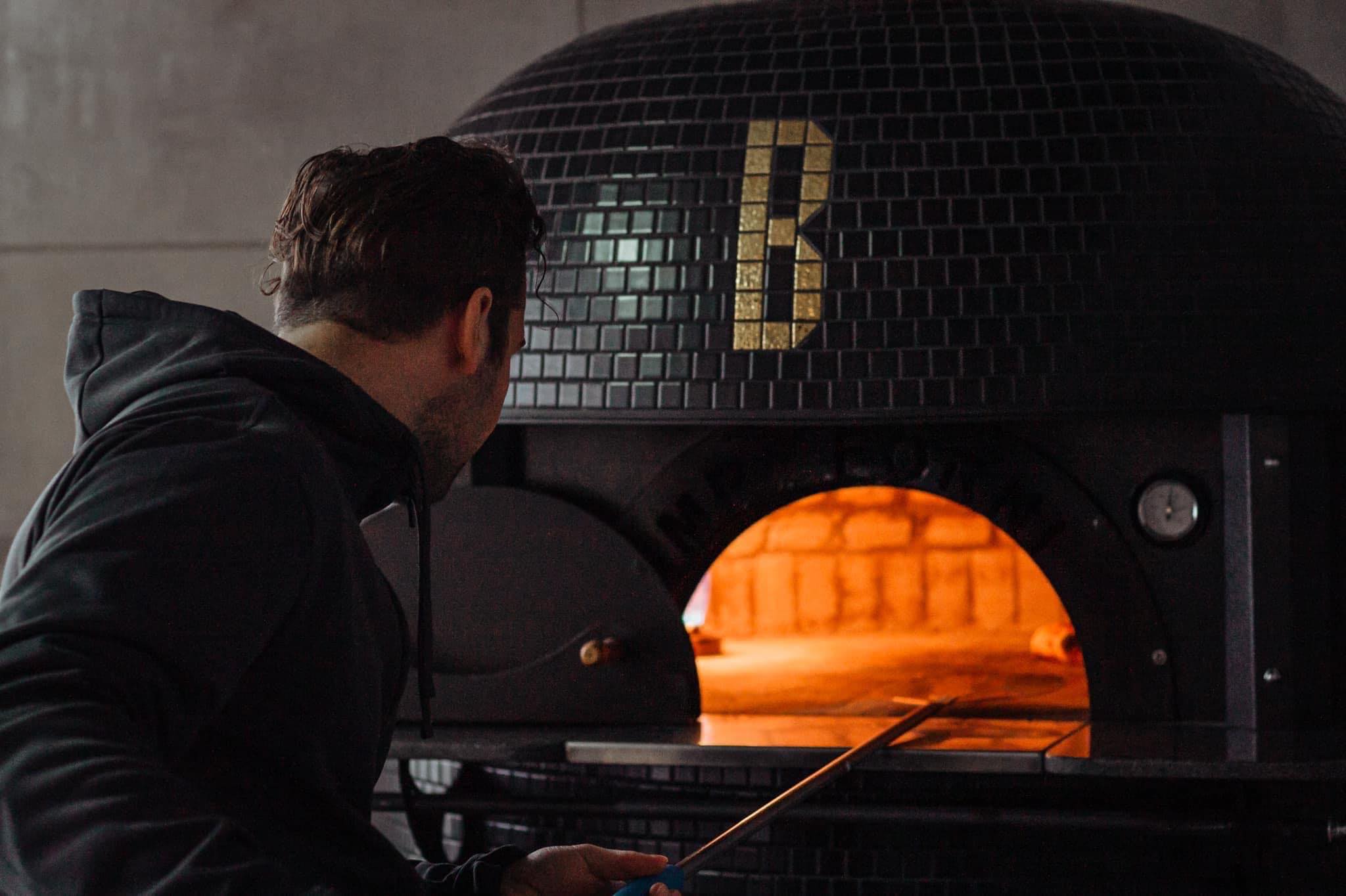
It was at this point that he was approached by Ákos Kertész, owner of Brucker Bakery Sandwich & Coffee in Budafok. Seeing Csaba’s ambition and knowing his professional background, Ákos invited him to the DP BBQ eatery in South Buda. This place completely rewrote what we think of the usual oil-soaked beach joints as instead of heavy, fried meats, and spicy paprika hake, it offered a variety of barbecue, with high quality ingredients and smoke from the smoker giving the mainstays of the dishes. Hamburgers, pulled pork sandwiches, and cigánka (a Békéscsaba style sausage, made wtih pork offal and cooked rice—the Transl.) featured on the menu, which was packed with such twists as kimchi, or truffle mayo. The place became so popular that even during Covid (when it remained open due to its open-air location), countless guests made the pilgrimage to have a bite of normality and treat themselves to a special experience.
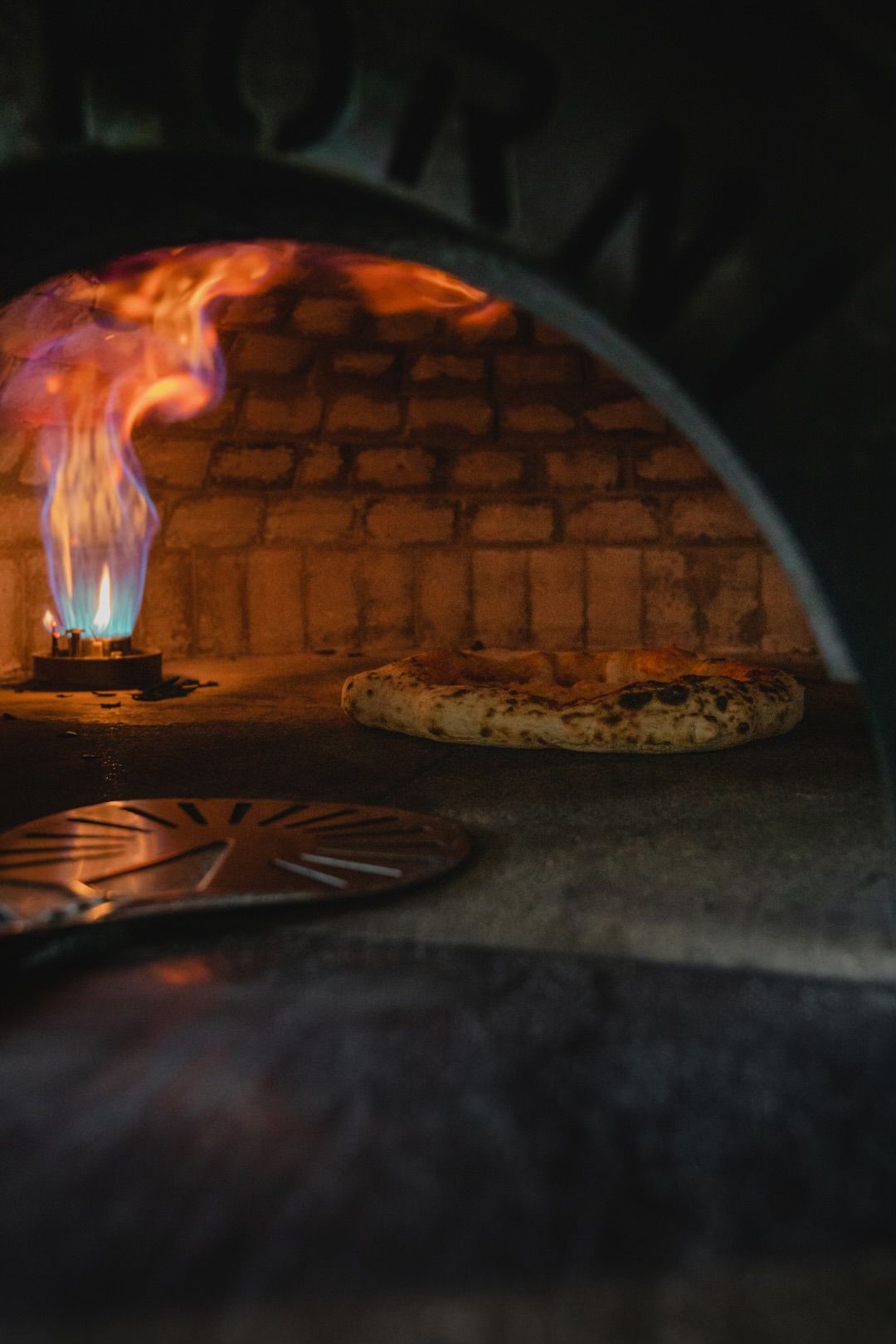
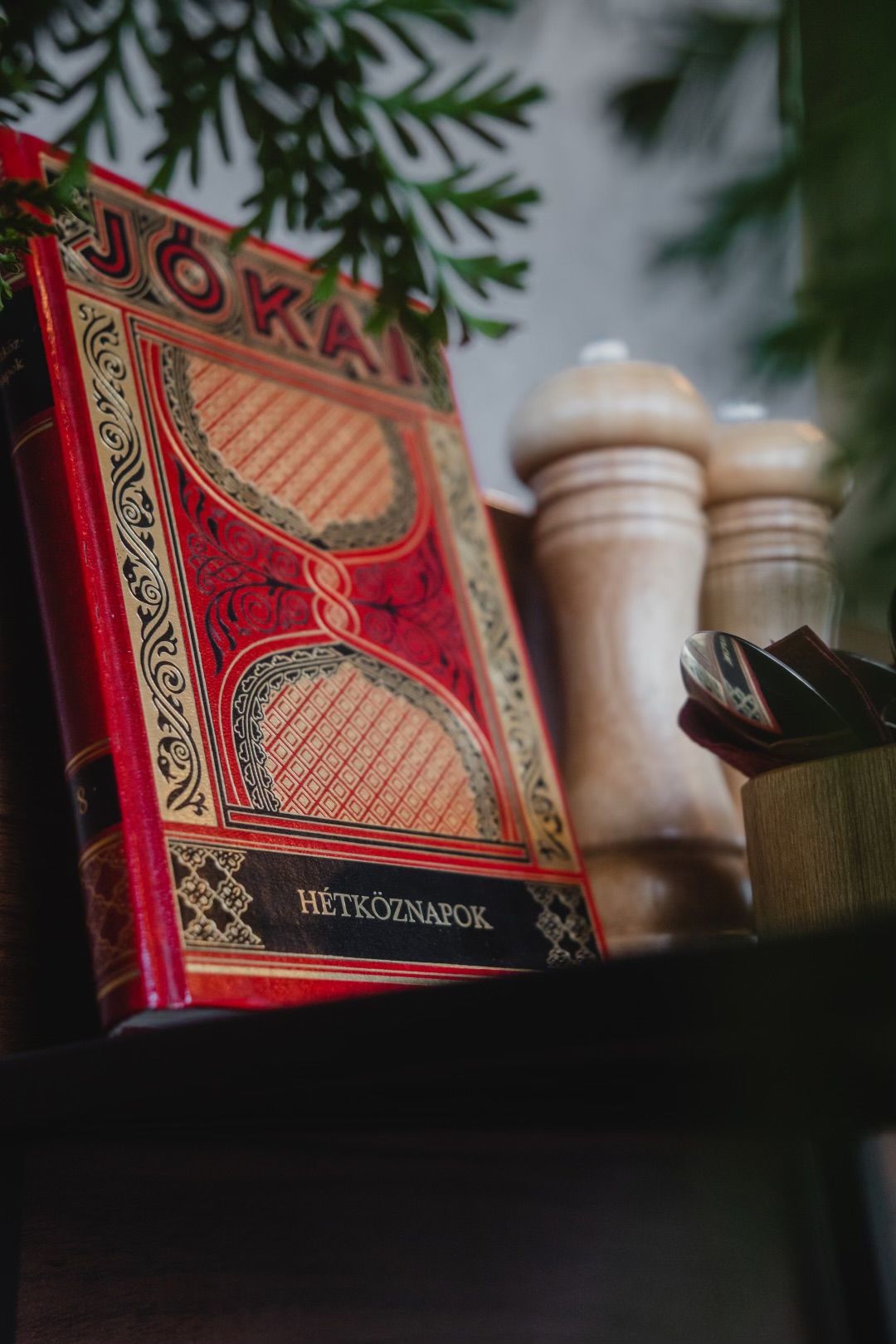
But many things have changed on the way, including Csaba’s values. Two years ago, the chef switched to a vegetarian diet and no longer trusted he could properly judge the quality of a meat dish based solely on the team’s feedback. However, the atmosphere, the informal milieu, and the interaction with the guests remained crucial for him, as well as the need to add a thousand layers to the simplest dishes, while still making them easy to enjoy. His lifestyle change is in line with his desire to give something back to nature, to understand it rather than exploit it, to enjoy its goods but also to give back to it. This is how he began to study permaculture, which he mastered to become a ‘Golden Laureate’ farmer. Permaculture (permanent agriculture) refers to agricultural production systems that minimize interference with nature and focus on its protection.
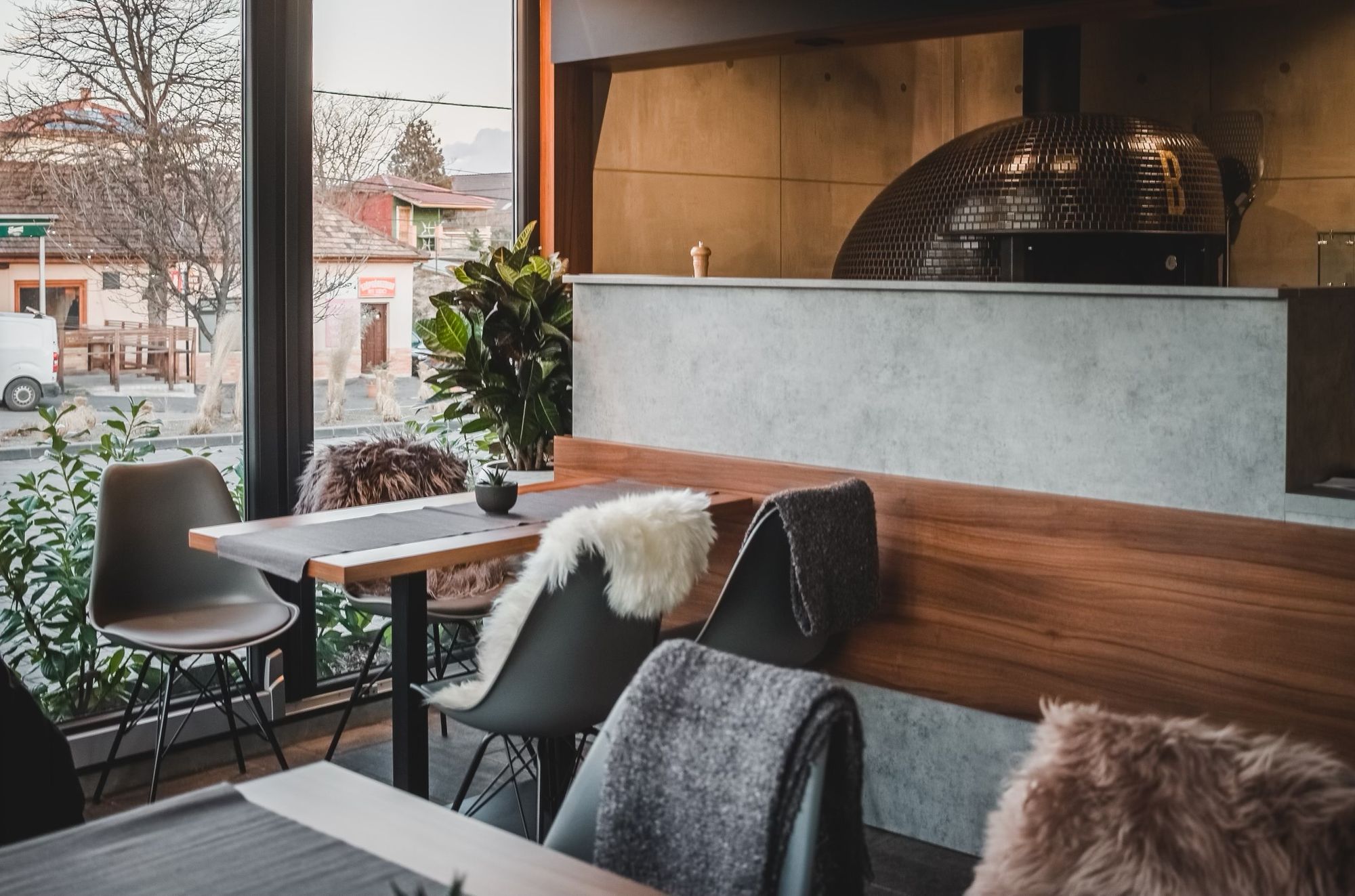
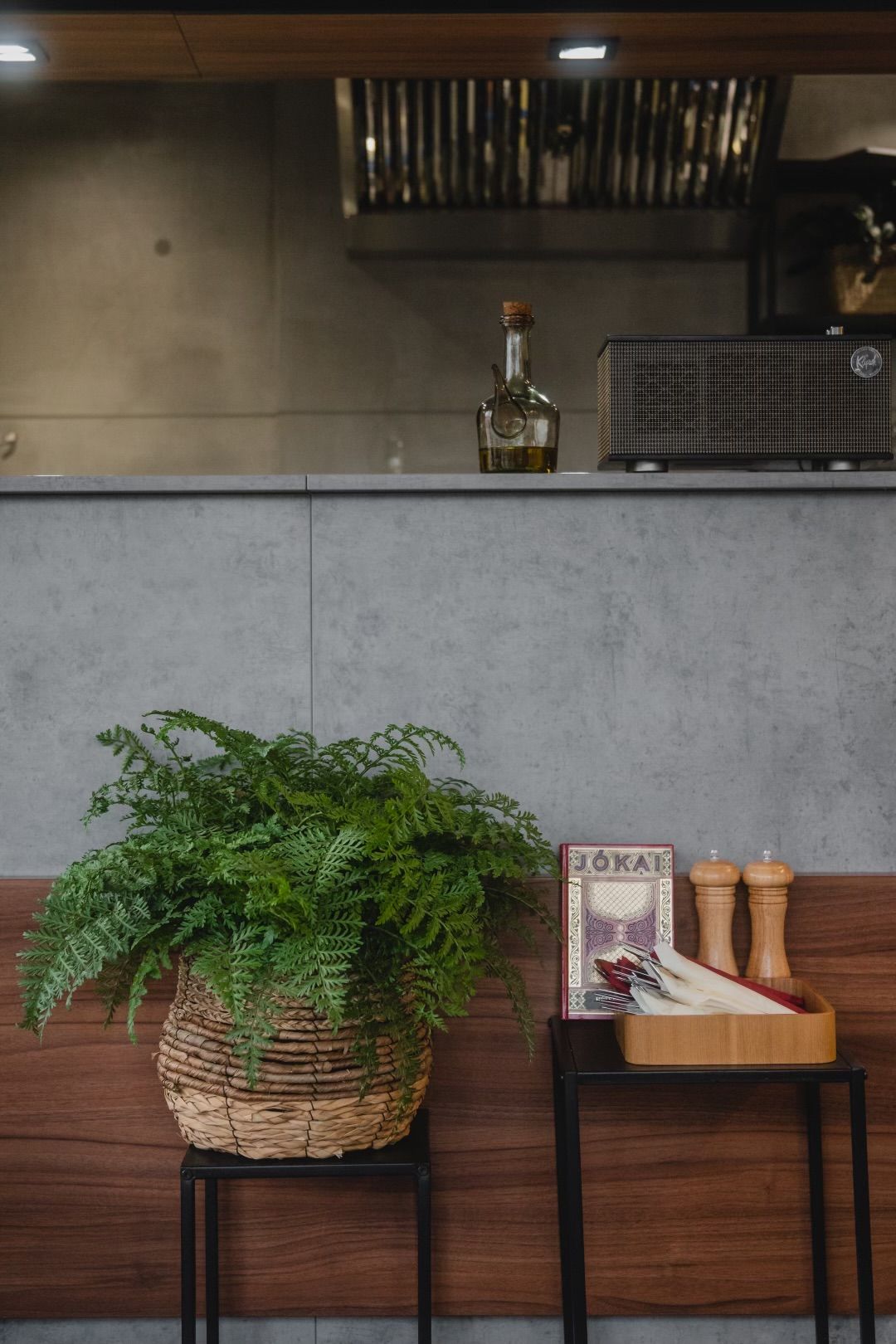
While working together, Csaba and Ákos started talking about the possibility of opening a small restaurant for the weekdays, since the bakery is a weekend focus. They imagined it with a distinctive profile, but still governed by precision and cleanliness, something more compatible with the family. So Hétköznapok. opened in Budafok, in a small glass booth, while the team was joined by Csaba’s brother Gyuri and his partner Betty Erdődy. Here the focus was not on slow-smoked meats, but on pizza, which Gyuri had been mastering for some time. If you really wanted to define their pizza, you could go for the canotto type, which means a small boat. Due to the higher hydration level of the dough, the crust is more raised, thus embracing the topping inside. After much experimentation, the base became a hybrid of spelt and emmer wheat, which comes from an organic mill in Százhalombatta. This is mixed with a small amount of yeast and water and left to rise for two and a half days. Then comes the stretching, toppings, and then the quick baking. The pizzas are topped with fior di latte, basil, cotto ham, or pistachios, and instead of San Marzano or Parmesan, they prefer to use Grana Padano or cocktail tomatoes of their own confit, and the result requires no comment. I confess, although I’m not a big pizza connoisseur (I eat relatively little gluten), I tried a truffle version here and it was scrumptious.
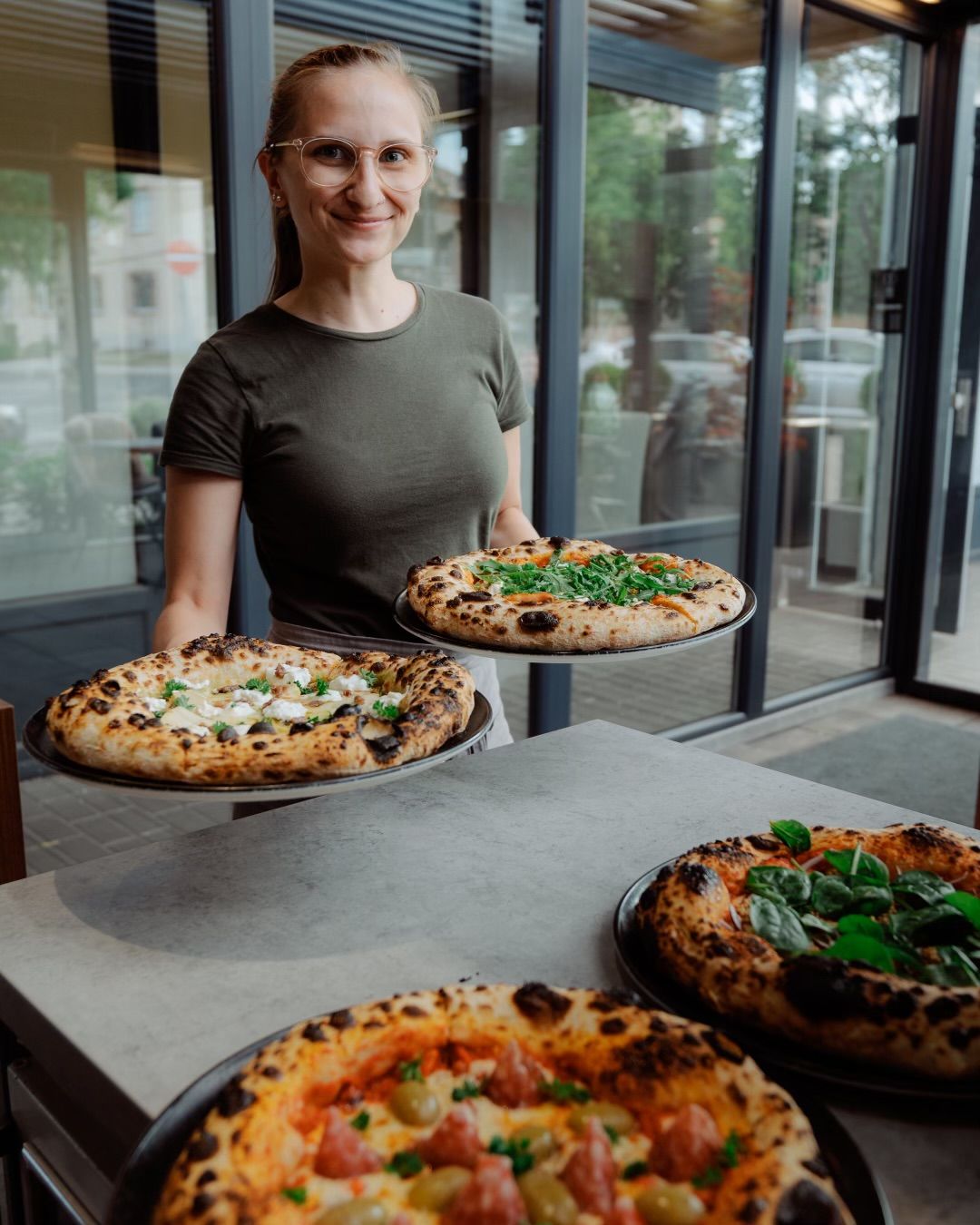
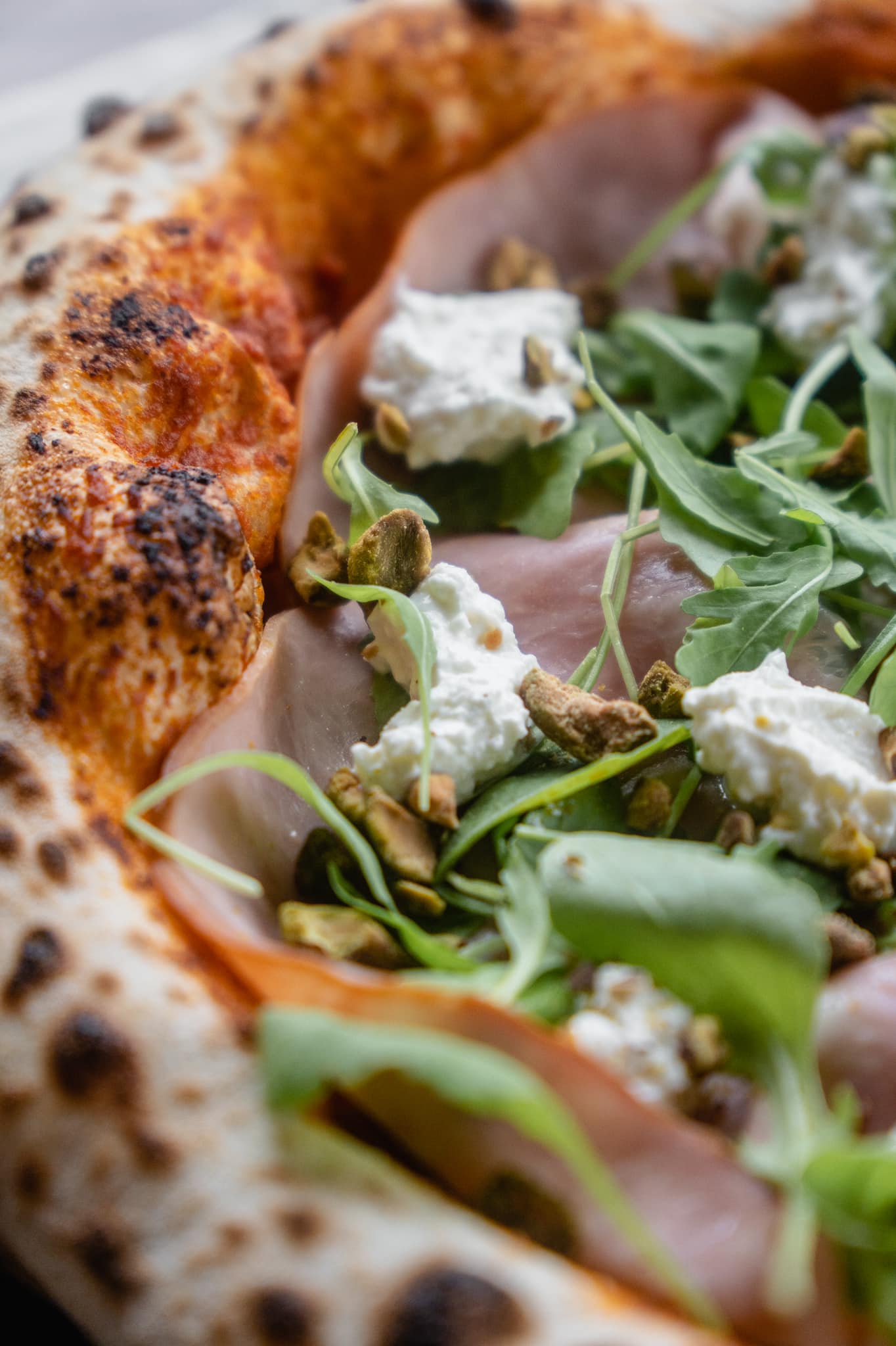
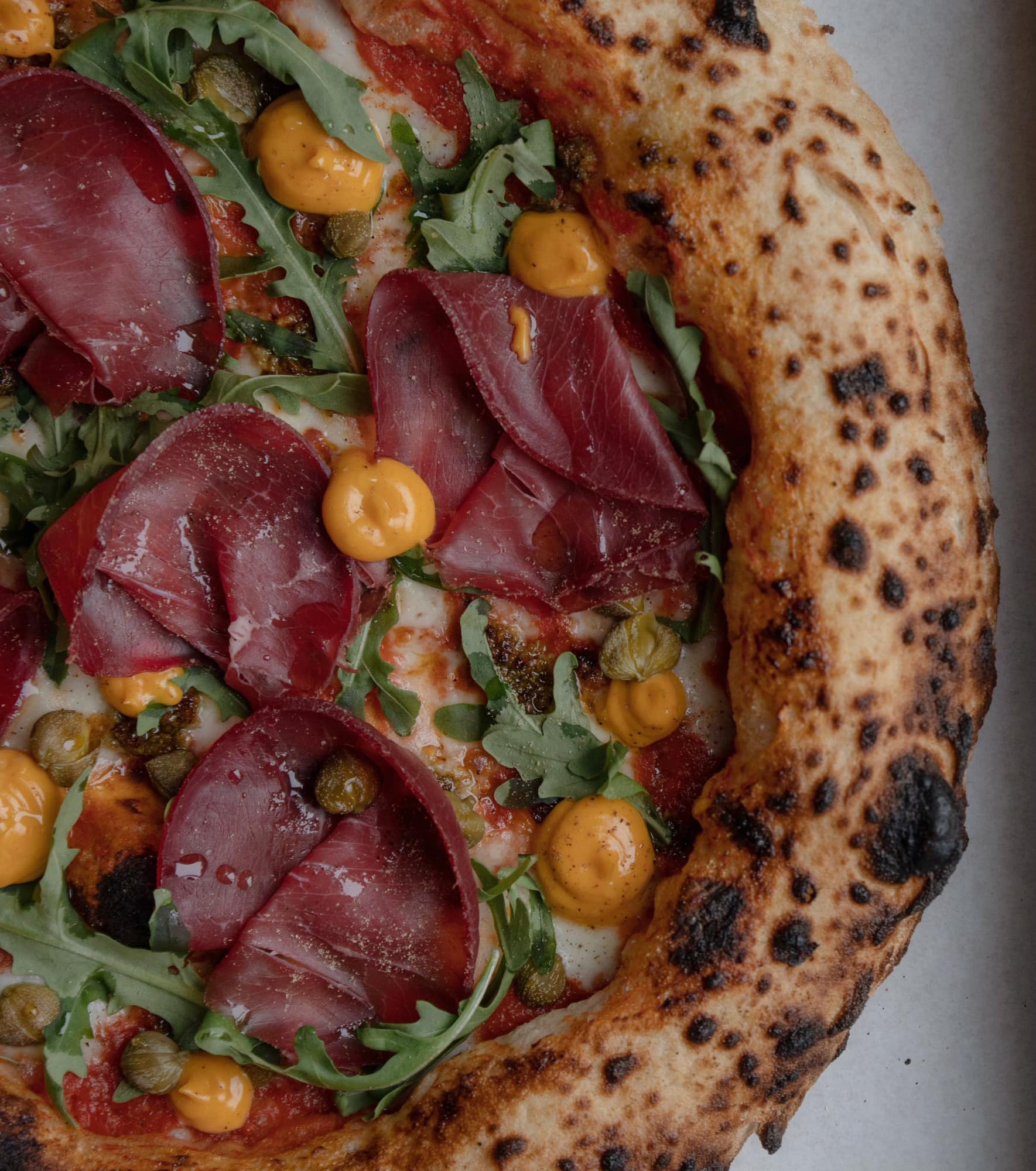
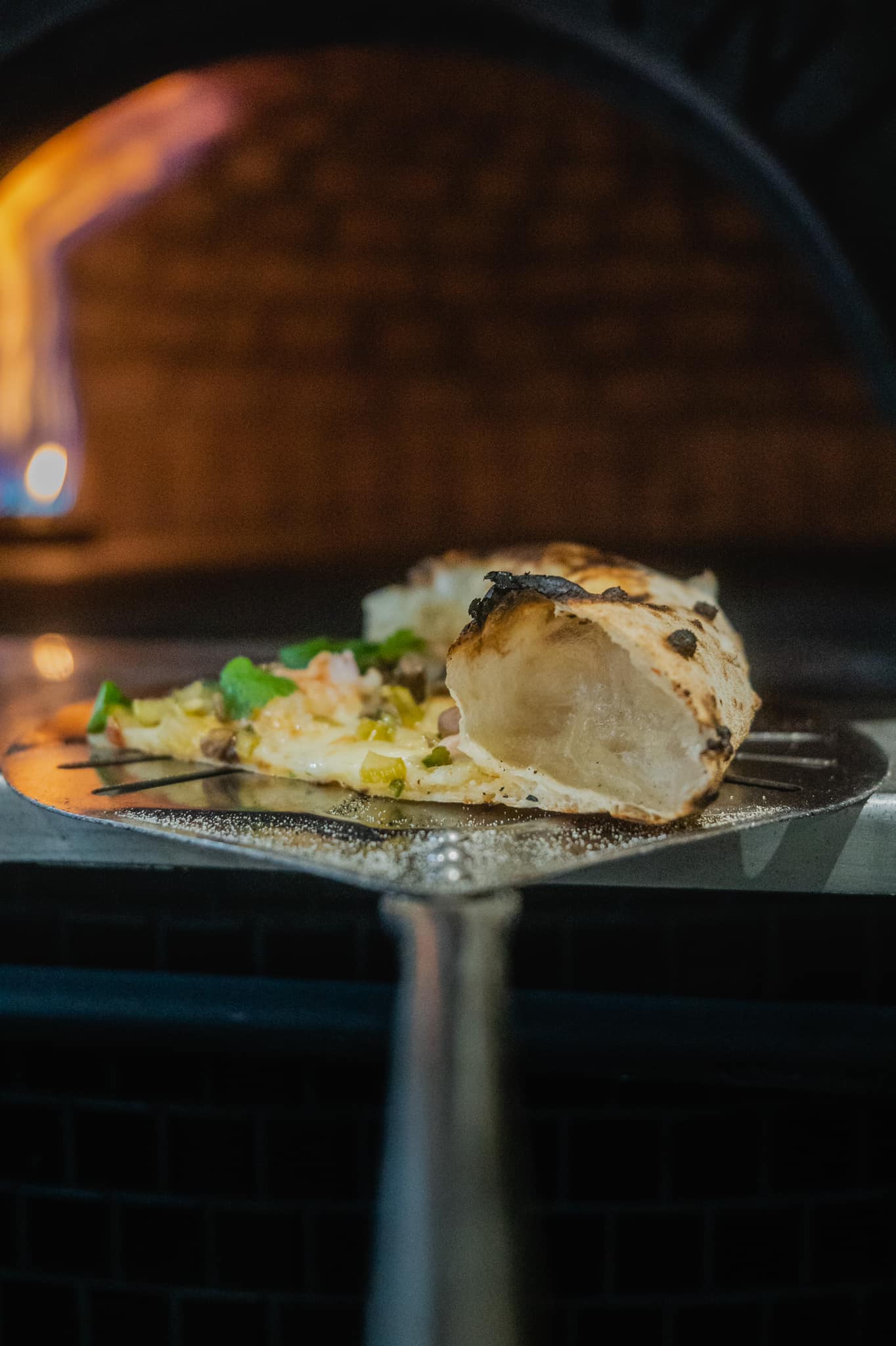
Oh, but there is so much more to Hétköznapok. than that. The seasonality, the use of local ingredients, the farm-to-table approach, and the vegetarian line are hard to experience through pizza alone, so the menu includes other items, giving room for Csaba’s culinary experiments. They have a regular soup speciality every week; when I was there it was a silky pumpkin cream soup with spicy granola. Its base is a dairy-free, béchamel-like velouté sauce made with vegetable bouillon and two types of pumpkin, slow-cooked with oil, potatoes, and white wine, topped with crunchy seeds mixed with chia seeds. The chia seeds thicken the soup, the granola is a bit spicy, and the soup is rich but not heavy, proving that the devil is in the details. Earlier they offered baked potato cream soup with Gordal olives, dried celery, whole grain bread, and honey, as well as Jerusalem artichoke cream soup with quince chutney.
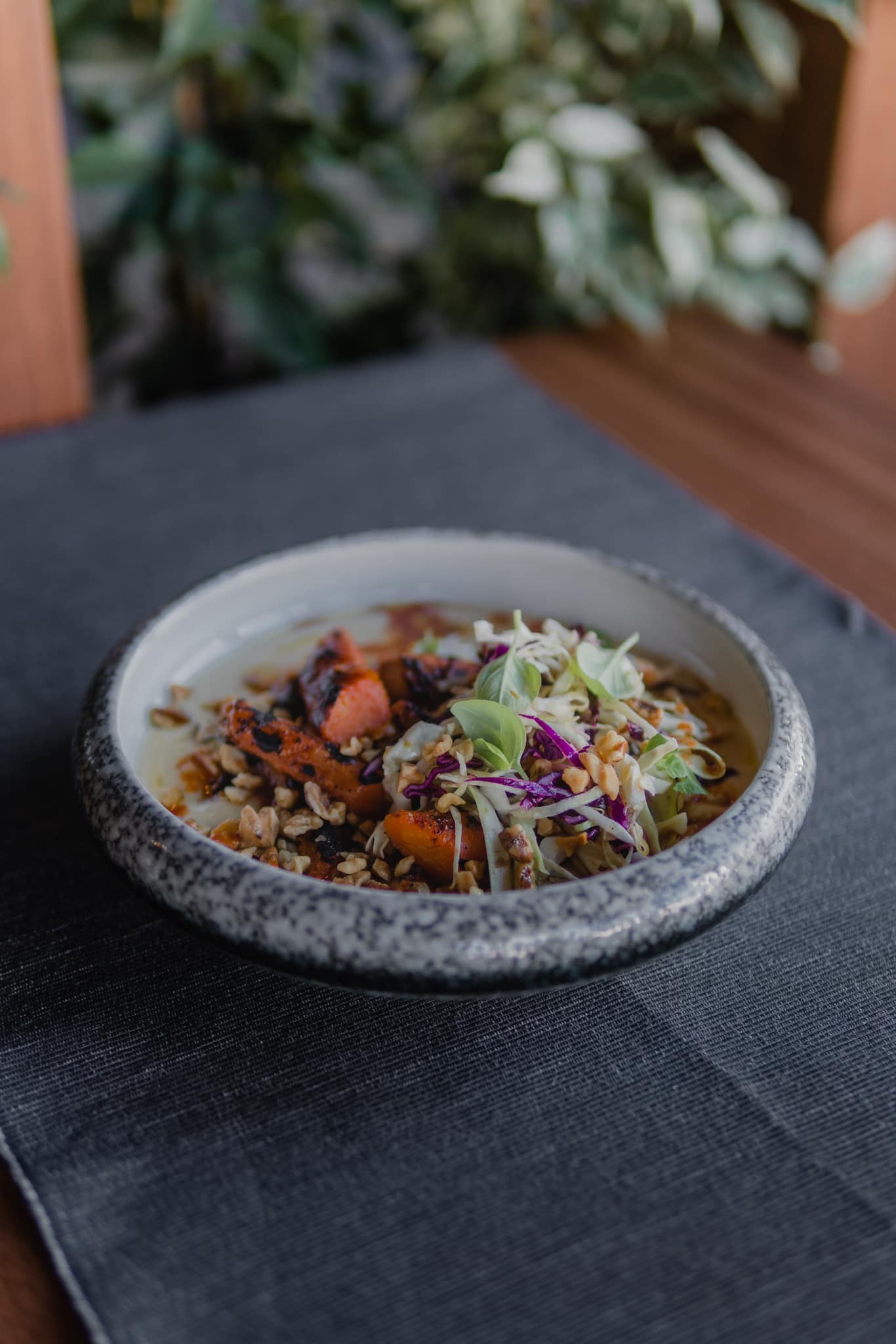

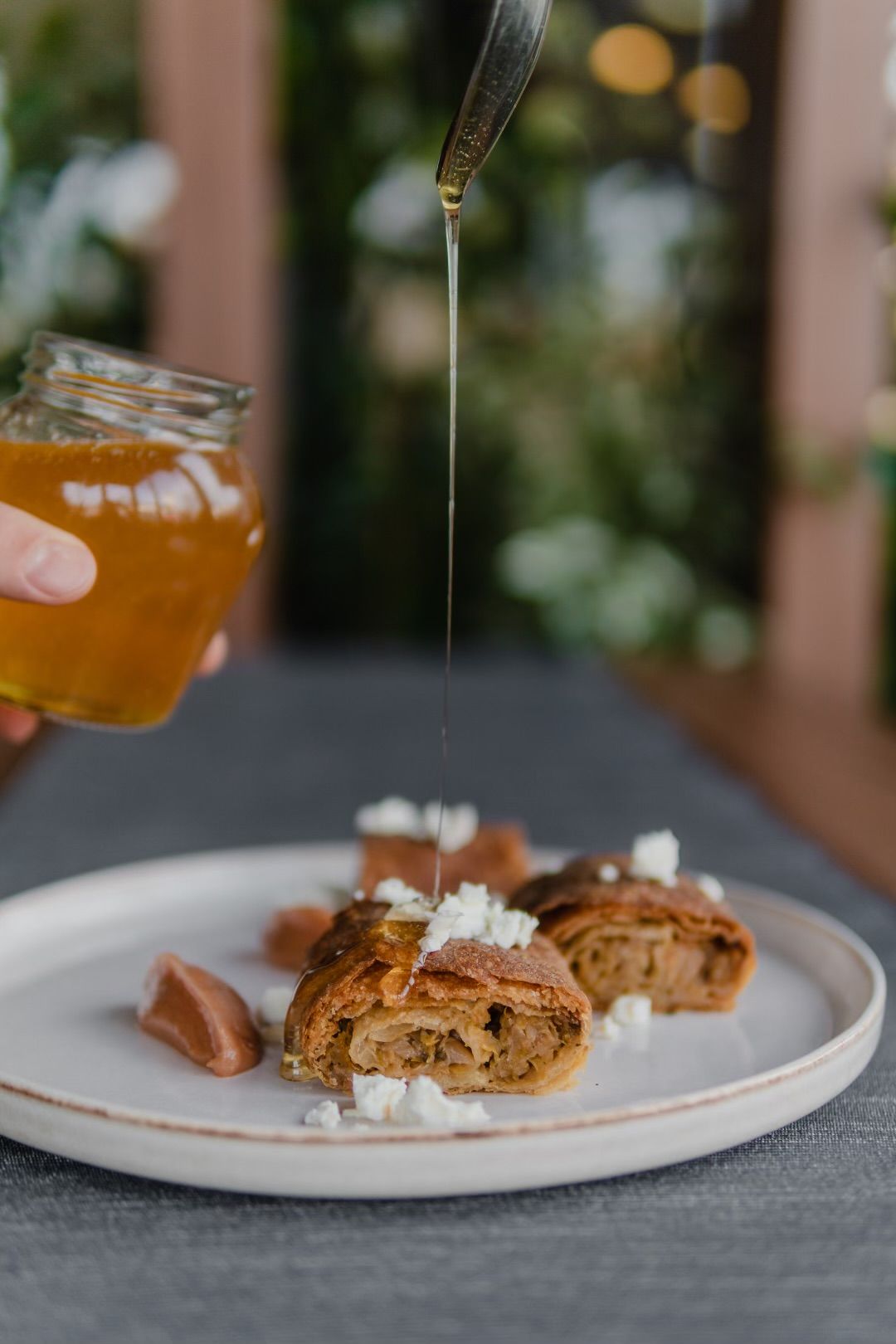
On Thursdays and Fridays, Farm2Fork’s Boldizsar Horváth serves up amazing vegetarian compositions from almost random fruit and vegetable crates. There are two options, one is usually a vegetable stew and the other is some kind of one-pot meal. Last week, they served kohlrabi stew with spinach and mushroom loaf, and summer rolls with ponzu; but potato stew, tahini, shiitake mushrooms, spinach relish, quail egg harmony, and a quartet of tandoori carrots, bean curd, coleslaw, and walnuts have also appeared on the menu.
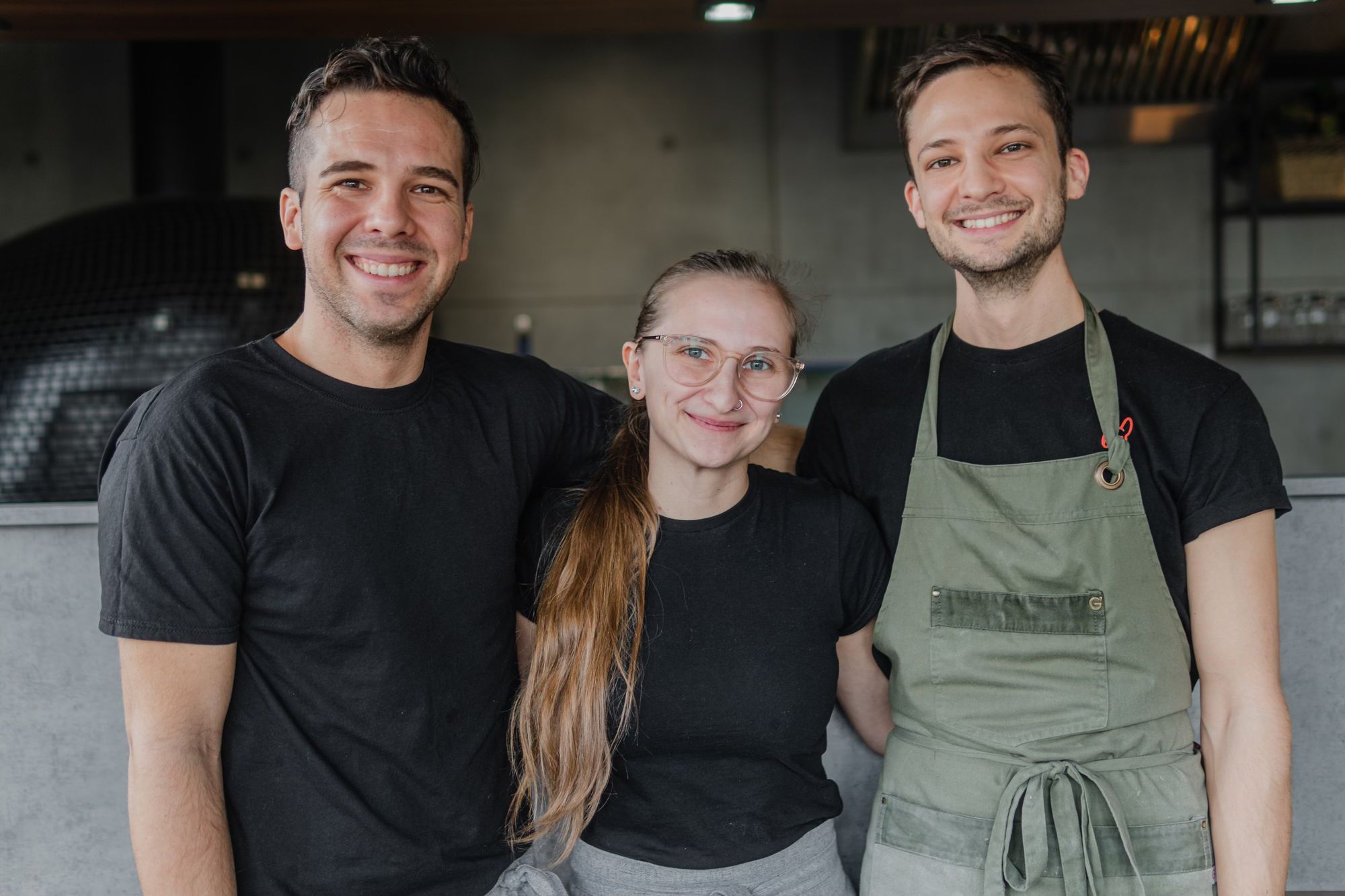
There’s three people from Csaba’s team behind the counter every day, and as they say, family comes first and the development of their own small garden comes second, which is currently underway in the area behind the restaurant. Next to the raised beds is a pile of depleted topsoil purchased from a local mushroom grower, and they are collecting compost to prepare for spring. The long-term goal is to supply the restaurant entirely from this garden. They don’t want a bigger space, just a lifestyle and food that is simple, sustainable, and natural.
It’s a set of values we can all take a leaf out of—I highly recommend breaking away from the everyday life for a different kind of weekday lunch.

“Fashion is my religion” | Lasha Devdariani

Cartoon characters loose on the streets | 0036MARK and street art










